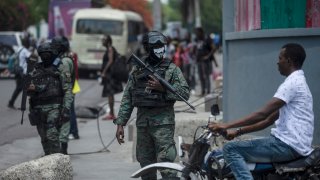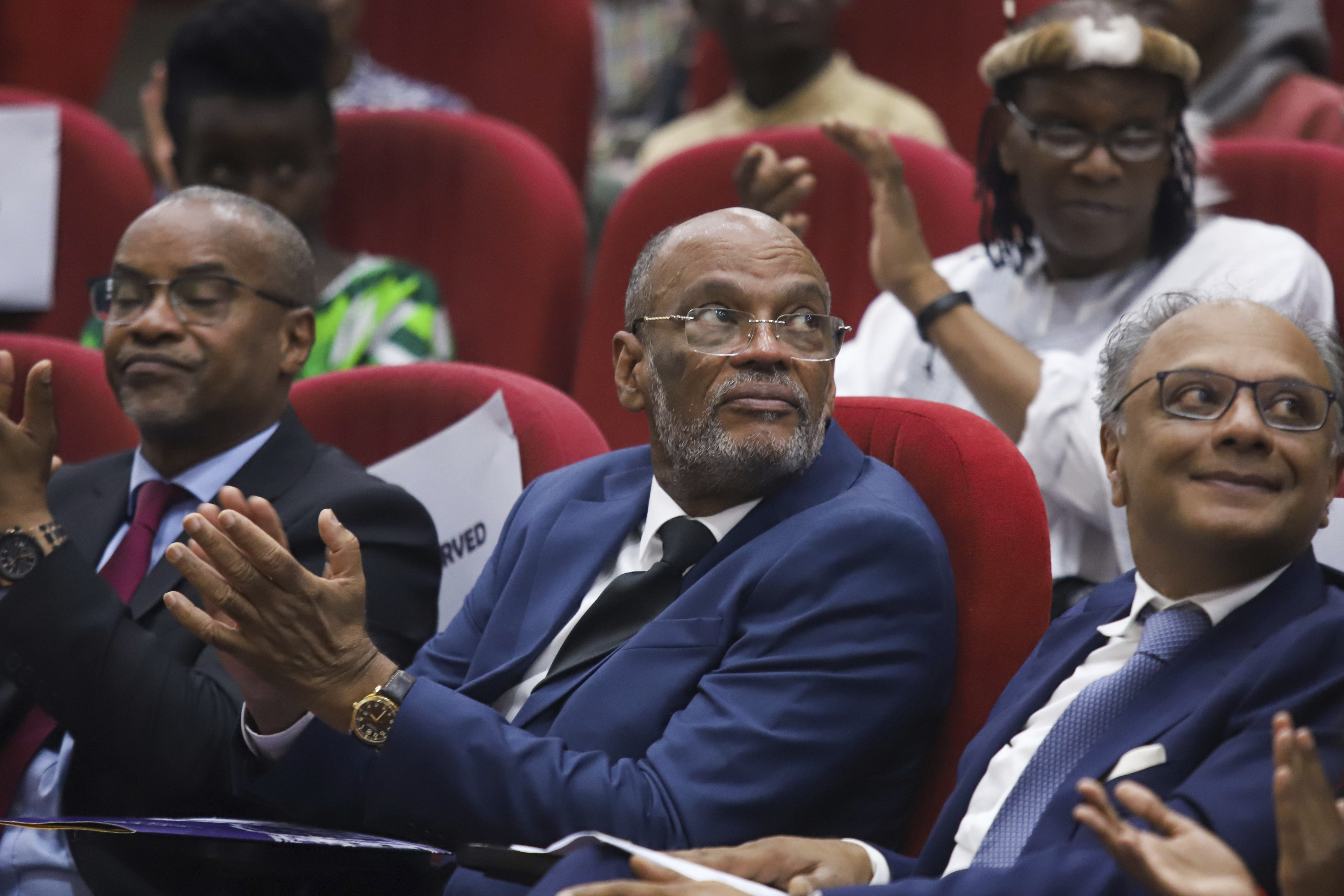
Armed gangs launched new attacks in the suburbs of Port-au-Prince early Wednesday, with heavy gunfire echoing across once-peaceful communities near the Haitian capital.
Associated Press journalists reported seeing at least five bodies in and around the suburbs, and gangs blocked the entrances to some areas.
People in the communities under fire called radio stations pleading for help from Haiti's national police force, which remains understaffed and outmatched by the gangs. Among the communities targeted in the pre-dawn hours were Pétion-Ville, Meyotte, Diègue and Métivier.
“When I woke up to go to work, I found I could not leave because the neighborhood was in the hand of the bandits,” said Samuel Orelus. “They were about 30 men with heavy weapons. If the neighborhood had mobilized, we could have destroyed them, but they were heavily armed, and there was nothing we could do.”
By Wednesday afternoon, another victim had been reported: a police officer killed in broad daylight in a Port-au-Prince neighborhood known as Delmas 72, according to the SYNAPOHA police union.
Get Tri-state area news delivered to your inbox.> Sign up for NBC New York's News Headlines newsletter.
As the attacks continued, the U.S. State Department announced Wednesday that it had completed its first evacuation of American citizens from Port-au-Prince. More than 15 Americans were airlifted to neighboring Santo Domingo, the capital of the Dominican Republic.
More than 30 U.S. citizens will be able to leave Port-au-Prince daily aboard the U.S. government-organized helicopter flights, the agency said.
“We will continue to monitor demand from U.S. citizens for assistance in departing Haiti on a real-time basis,” the department said.
On Sunday, the agency evacuated more than 30 U.S. citizens from the coastal city of Cap-Haitien in northern Haiti to Miami International Airport.
“We hope that conditions will allow a return of commercial means for people to travel from Haiti soon. We and the international community and the Haitian authorities are working for that to become a reality,” the State Department said.
Also on Wednesday, a plane chartered by the Florida Department of Emergency Management evacuated 14 Florida residents, including children, out of Haiti, said Kevin Guthrie, executive director of the state agency, at an airport in Sanford, Florida where the passengers were expected to land.
More than 300 Floridians are in Haiti, and the Florida-sponsored operation was working on getting them out on future flights despite bureaucratic obstacles from the U.S. government and safety threats in Haiti, Guthrie said at a news conference, where he was accompanied by Florida Gov. Ron DeSantis.
“We understand there are people really in danger right now who are fellow Floridians,” DeSantis said.
Wednesday's attacks in parts of Port-au-Prince came two days after gangs went on a rampage through the upscale neighborhoods of Laboule and Thomassin in Pétion-Ville, with at least a dozen people killed.
The violence forced the closure of banks, schools and businesses across Pétion-Ville, which until now had been largely spared from the attacks that gangs launched on Feb. 29.
Gunmen have set fire to police stations, forced the closure of Haiti’s main international airport and stormed the country’s two biggest prisons, releasing more than 4,000 inmates.
Scores of people have been killed and some 17,000 others have been left homeless amid the violence.
Meanwhile, Haitians await the possibility of new leadership as Caribbean officials rush to help form a transitional presidential council that will be responsible for appointing an interim prime minister and a council of ministers.
A top official with regional trade bloc Caricom who was not authorized to speak to the media told The Associated Press late Wednesday that the Pitit Desalin party of Jean-Charles Moïse accepted to be a voting member of the council after initially rejecting a seat. The party was the last remaining holdout, meaning that the nine-member council is now fully formed, although its members have not been disclosed publicly.
Moïse recently formed an alliance with Guy Philippe, a former rebel leader who helped overthrow former President Jean-Bertrand Artistide and who was repatriated to Haiti in November after serving time in a U.S. prison after he pleaded guilty to money laundering.
Prime Minister Ariel Henry, who was locked out of Haiti when the airports closed, has said he will resign once the council is formed.
___
Associated Press writers Bert Wilkinson in Georgetown, Guyana; Matthew Lee in Jeddah, Saudi Arabia; and Michael Schneider in Orlando, Florida, contributed to this report.



